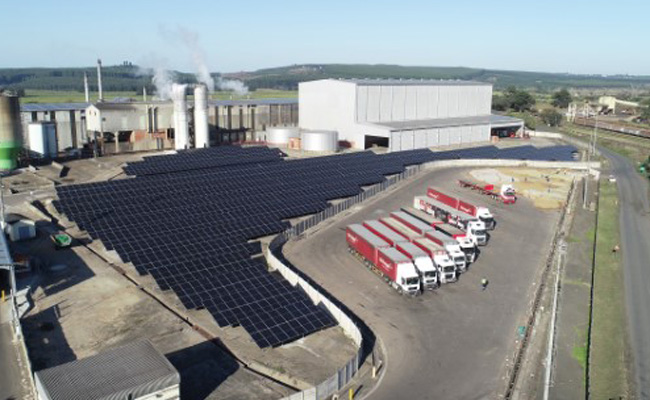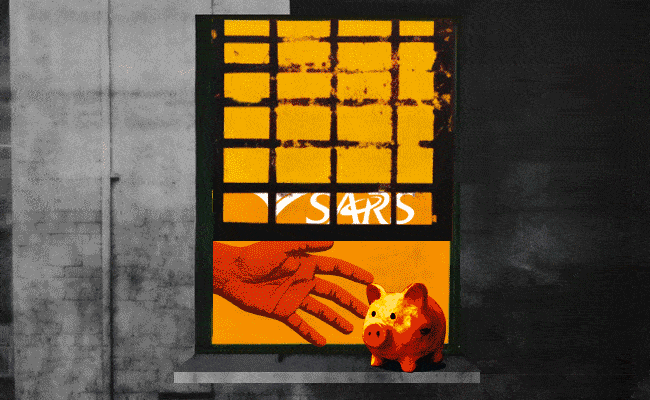Eskom’s fight to keep secret its deal with the southern hemisphere’s largest aluminium smelter exposes a deeper issue – how “commercial sensitivity” is being abused to hide contracts with the state and its entities from public scrutiny.
In 2023, Open Secrets submitted a Promotion of Access to Information Act (Paia) request to Eskom for its 2021 negotiated pricing agreement (NPA) with South32’s Hillside smelter in Richards Bay. The application sought access to contracts, pricing structures, signatories, invoices, duration and annual adjustments.
Eskom responded with a version of the agreement so heavily redacted that it was impossible to assess the financial implications, pricing model or fairness of the deal.
This amounted to a refusal of access in all but name. Only after Open Secrets lodged a complaint with the Information Regulator did Eskom eventually release a more meaningful, unredacted version.
An assessment by Meridian Economics found that Eskom is giving South32 an estimated R92bn discount over the 10-year life of the contract. Public access to the unredacted NPA has since enabled an informed debate on whether this discount is justified or reasonable.
This was not the first time Eskom had attempted to shield such deals from public scrutiny.
More than a decade ago, the refusal of a request by journalists to access the previous version of the NPA ended up in court. In BHP Billiton Plc Inc v De Lange (189/2012) [2013] ZASCA 11 (March 15, 2013), the Supreme Court of Appeal (SCA) compelled Eskom to disclose its earlier NPA with BHP Billiton, the predecessor of South32’s Hillside smelter, on the grounds of overwhelming public interest.
Same battle all over again
The SCA rejected Eskom’s argument of commercial confidentiality, ruling that transparency was constitutionally required due to the “undoubtable public interest” in how Eskom sets its prices. That judgment established a clear precedent.
Yet, a decade later, Open Secrets had to fight the same battle to obtain information that should have been proactively disclosed – a poor reflection of Eskom’s commitment to constitutional transparency
Despite the 2013 ruling, Eskom again argued that disclosure could disadvantage it in future negotiations. This contradicted binding precedent and ignored the obligations imposed by Paia. As a public entity, Eskom cannot rely on commercial sensitivity without justification, especially when its pricing decisions directly affect the public.
The SCA had ruled that the agreement had to be disclosed because Eskom had not provided a sufficient basis, as per Paia, to withhold it.
The improper and excessive use of “commercial sensitivity and confidentiality” to block access to information has become a widespread and troubling trend, particularly in cases involving energy, procurement and climate finance.
Both public and private bodies frequently invoke the following provisions of Paia to prevent access:
- Section 36(1) permits public bodies to withhold commercial or confidential information of third parties.
- Section 37(1) allows refusal if disclosure would breach a duty of confidentiality if the information was supplied in confidence and future disclosure might be prejudiced.
- Section 64(1) enables private bodies to refuse access to confidential commercial information.
While these clauses are meant to protect genuinely sensitive material, they are increasingly used to frustrate legitimate requests in the public interest – especially where public funds and corporate interests intersect. They are often applied with no proper explanation of why confidentiality should apply.
Notably, courts have ruled that parties cannot rely on blanket confidentiality clauses or vague exemptions to override public interest – particularly when public funds or resources are at stake.
State contracts for renewable-energy projects, fossil-fuel infrastructure and electricity pricing arrangements have repeatedly been protected from scrutiny on these claims, despite involving vast public funds and long-term obligations. This secrecy undermines transparency, enables anti-competitive behaviour, shields inflated costs and erodes public trust.
The cost of secrecy is profound. Without access to such records, civil-society organisations – and by extension the public – cannot monitor state procurement for collusion, price gouging or unfair tendering. The result is not only a drain on the public purse but also greater market concentration that keeps smaller or local players locked out of strategic sectors.
Under Paia, public institutions must apply the principle of severability (sections 28 and 59). Likewise, private bodies (sections 50 and 63) must release non-exempt parts of records.
In practice, however, many institutions fail to do this. Instead of reviewing documents line by line to separate exempt from non-exempt material, they routinely redact entire records – or refuse access altogether – citing a single exemption as though it applies to everything.
These practices defeat the purpose of the constitutional right to information and undermine both the spirit and letter of Paia.
Strengthen redaction rules
The Hillside case underlines the need for stronger oversight and clearer redaction standards. To its credit, the Information Regulator intervened after Open Secrets complained, enabling eventual disclosure. Still, the regulator could go further to prevent abuse.
It could enforce redaction standards that allow only narrowly tailored exemptions under chapter 4 of Paia, require public and private bodies to produce redaction logs citing the legal basis for each blackout, and establish a faster dispute-resolution process so public-interest requests are not delayed by bureaucracy.
Without such measures, unjustified redactions risk becoming a new form of institutional secrecy – one that weakens rather than advances the right to know.
In this regard, the Access to Information (ATI) Network, a coalition of civil society organisations advocating for transparency and accountability in South Africa’s climate, energy and environmental governance, submitted a report to the Information Regulator on August 7 2025.
The report outlined how courts have interpreted Paia in energy-related cases and the barriers ATI members face when seeking records from public and private bodies. It documented procedural failures, excessive redactions and the misuse of commercial-confidentiality claims – and offered guidance on proper disclosure practices.
The Hillside case is not an anomaly – it’s a warning. Without transparency, the public can’t see who benefits from decisions that shape South Africa’s energy future. Until regulators stop letting overused arguments override accountability, Eskom’s pricing secrecy will remain a symptom of a more profound governance crisis: one where power is traded in the dark.
Abongile Nkamisa is an admitted attorney and lawyer at Open Secrets. She holds an LLM in constitutional and administrative law from the University of Cape Town.
Sign up to Currency’s weekly newsletters to receive your own bulletin of weekday news and weekend treats. Register here.












